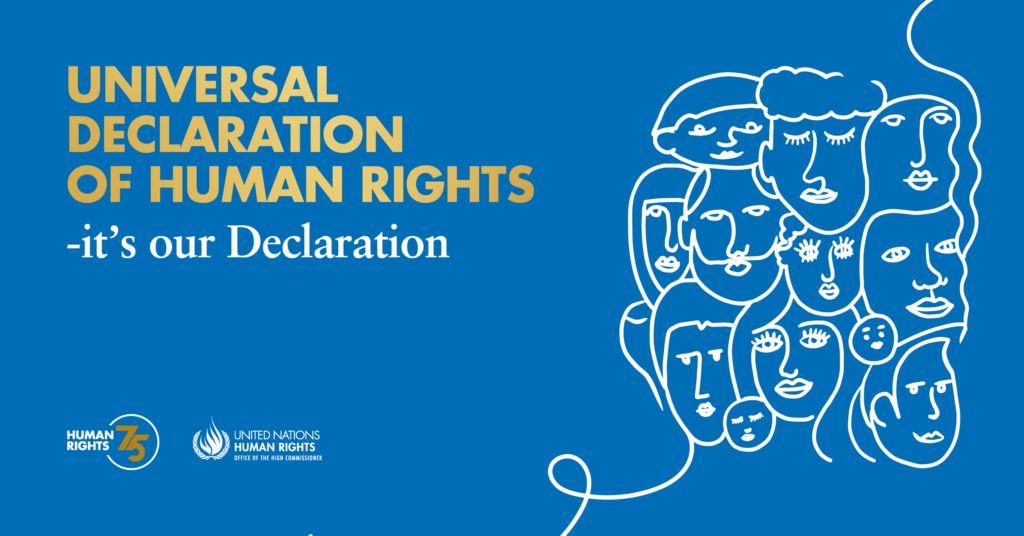What is the Universal Declaration of Human Rights, which is marking its 75th anniversary? (Indian Express)

- 09 Dec 2023
Why is it in the News?
Seventy-five years ago on Sunday, the UN General Assembly approved the Universal Declaration of Human Rights at a meeting in Paris – laying one of the foundation stones of the international order that emerged following the horrors of World War II.
What is the Universal Declaration of Human Rights (UDHR)?
- On 10 December 1948, during a session in Paris, the United Nations General Assembly unanimously endorsed the Universal Declaration of Human Rights (UDHR), marking a pivotal moment in shaping the post-World War II international order.
- The UDHR emerged as a response to wartime atrocities and aimed to establish a shared understanding of the fundamental rights and freedoms inherent to all individuals.
- A concise yet impactful document, the declaration comprises a preamble and 30 articles that delineate essential rights and freedoms.
- These 30 articles encompass a comprehensive spectrum of civil, political, economic, social, and cultural rights.
- Emphasizing their universality, these rights are deemed applicable to all individuals, irrespective of nationality, ethnicity, gender, religion, or any other status.
- While not legally binding, the UDHR has functioned as a guiding force inspiring the development of international human rights law.
Key Features:
- Preamble: The preamble elucidates the reasons behind adopting the declaration, underscoring the inherent dignity and the equal and inalienable rights of all members of the human family.
- Articles: The UDHR articulates 30 articles outlining a wide array of civil, political, economic, social, and cultural rights. Examples of these rights include:
- The right to life, liberty, and security of person.
- The right to freedom of religion, expression, and assembly.
- The right to work and education.
- The right to an adequate standard of living.
- The declaration asserts that "all are equal before the law" and emphasizes the entitlement of everyone to "a fair and public hearing by an independent and impartial tribunal."
- It also affirms the right of "everyone to seek and to enjoy in other countries asylum from persecution.
Achievements of UNDHR:
- The United Nations Universal Declaration of Human Rights (UNDHR) is acknowledged for its significant impact, having served as the inspiration and foundation for over 70 human rights treaties at both global and regional levels, as noted by the United Nations.
- It played a pivotal role in inspiring movements such as decolonization, the anti-apartheid movement, and various struggles for freedom worldwide, including those related to gender, LGBTIQ+ rights, and opposition against racism.
What is the Current Situation?
- As the 75th anniversary is commemorated, human rights face challenges amid conflicts such as the Israel-Hamas war, Russia's actions in Ukraine, internal strife in Myanmar and Sudan, and numerous other global situations.
- UN Secretary-General Antonio Guterres has remarked that the Universal Declaration has been frequently misused and abused, exploited for political gain, and often ignored by those who should uphold it.
- Contrastingly, Amnesty International asserts that the declaration serves as living proof that a global vision for human rights is attainable and can be realized.
- Despite instances of neglect or exploitation, the declaration remains relevant, and the world is encouraged to recognize its successes while learning from its failures.
